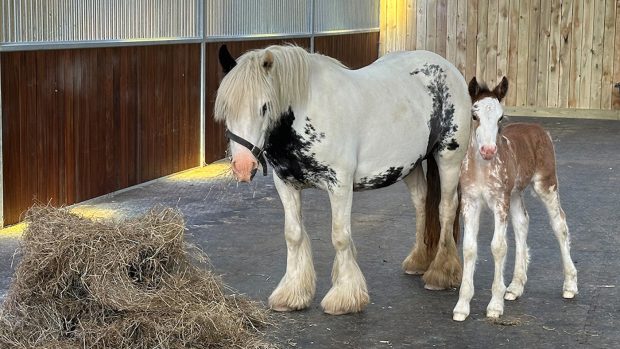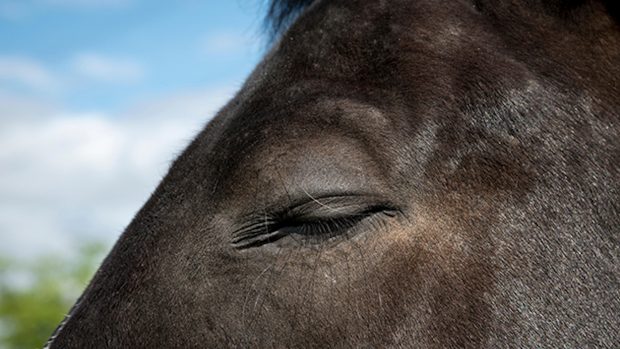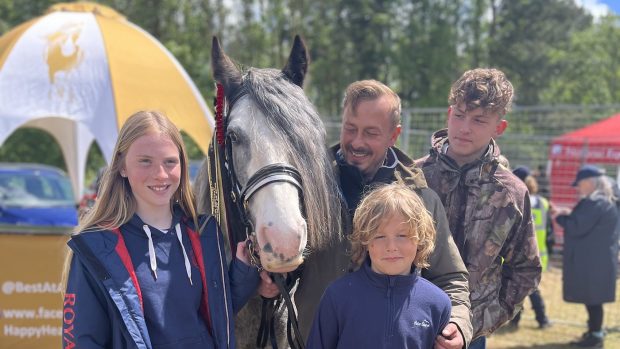A national survey has revealed a “worrying picture” owing to the cost-of-living crisis as many owners are working more and even going without food to ensure their horses are cared for.
The National Equine Welfare Council (NEWC) has released the results of its latest survey on the cost of living, which was completed by more than 6,000 owners from England, Wales, Scotland and Ireland.
The results show that 81% of respondents were concerned about the continued pressure of increased costs, and 39% said the crisis had had a medium or high impact on their ability to keep their horses and they had had to make additional sacrifices to provide basic care.
A fifth (20%) of respondents had taken on another job or increased their hours to help pay for their horses’ care, 2% said they were considering giving their horses to a charity owing to increased costs and 5% were considering euthanasia.
Rebecca Boulert, education officer at World Horse Welfare, which is coordinating this year’s survey, said, “We know from last year’s research that many owners were just about coping, all possible cost savings had already been made, so they really were feeling the pressure. This year’s survey shows that these problems are just not going away.
“Owners’ main concerns for the coming year are how they are going to afford even essential items like vet costs, emergency care, feed and forage. For us as welfare organisations, it makes for very concerning reading, and of course as charities we are also facing increased costs and reducing donations. It’s a worrying picture.”
Umbrella organisation NEWC, members of which include governing bodies, educational establishments and welfare charities, wanted to gain a picture of the situation to help the development of support for those who need it most, and help prevent welfare issues arising.
One survey respondent said: “I can’t afford to call vets out of hours any more. I rent a field and can’t afford a proper horse shelter or stables. I can’t afford the farrier regularly.”
Another said: “Everything increased resulting in it becoming impossible to continue to keep my horse in work, so she’s now been retired to a field.”
A third said they had had to go without food to feed their horse.
“Large numbers of horse owners are working incredibly hard to minimise the impact of the high cost of living on the horses they care for and love,” a NEWC spokesperson said.
“Many have exhausted the cost-cutting avenues available to them and are now taking steps that involve significant personal sacrifice, sometimes even to the point of compromising their own wellbeing. There is also a growing tendency to reduce the use of routine preventative horse care and delay veterinary involvement to investigate and treat health issues, which could leave equines more vulnerable to compromised welfare.
“Not being able to provide fully for their equines further increases the stress placed on owners. It is evident that some people have already reached a point where they are no longer able to fully meet their horses’ essential needs.
“There is a clear risk of further situations emerging where equine welfare falls below acceptable standards if economic conditions persist, particularly during the winter.”
Some respondents said that despite the pressure of costs, horses were so important to their mental health, they were not prepared to give them up. Others highlighted issues relating to concerns about climate change, such as the impact of wet winters on turnout.
There were positive welfare outcomes recorded, such as the fact some horses are being turned out for longer or living out, and owners opting for testing-led worm control programmes.
The results of both surveys will be shared with the UK Government, devolved administrations and local authorities to “help inform their understanding of the situation as well as policy decisions, including potential financial support to those most in need”.
You might also be interested in:

Owners go without heating and hot water to afford their horses

New service launched for owners struggling to care for their horses

‘It’s a false economy’: owners urged not to scrimp on horse care as cost of living crisis continues

Subscribe to Horse & Hound magazine today – and enjoy unlimited website access too
Horse & Hound magazine, out every Thursday, is packed with all the latest news and reports, as well as interviews, specials, nostalgia, vet and training advice. Subscribe today and enjoy the magazine delivered to your door every week, plus unlimited website access and digital versions of the magazine dating back to September 2012.





